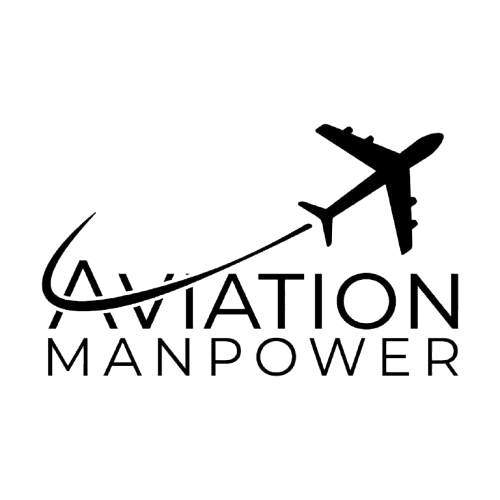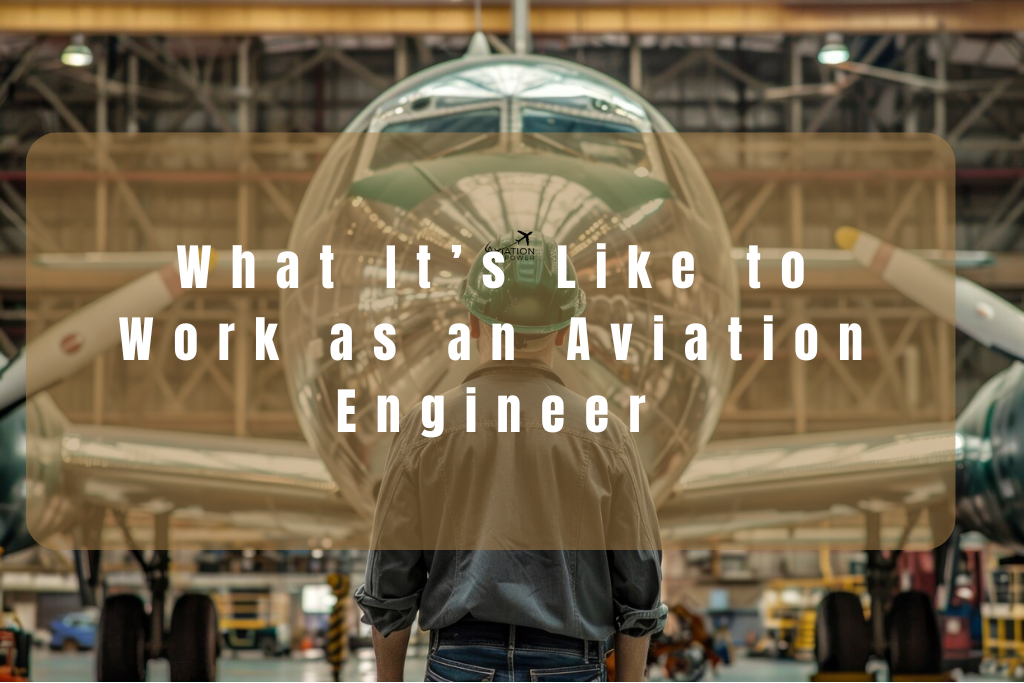Introduction:
Aviation engineering is a career that combines the thrill of flight with the precision of engineering, creating a perfect blend for those passionate about technology, mechanics, and the aviation industry. As an aviation engineer, you’re responsible for ensuring that aircraft are designed, constructed, and maintained to the highest standards of safety, performance, and efficiency. Whether you work on aircraft systems, propulsion, or structures, your role is crucial in making air travel as safe and efficient as possible.
But what is it like to work as an aviation engineer? The aviation industry is fast-paced, ever-evolving, and filled with opportunities for those with the right skills. In this blog, we’ll take a deeper dive into the day-to-day life of an aviation engineer, the various specializations within the field, the skills required, and how aviation recruiters, aviation job recruitment agencies, and the best aviation recruitment agencies can help you land your dream job in this exciting industry.
The Role of an Aviation Engineer
Aviation engineers are the backbone of the aviation industry. They design, build, test, and maintain the systems that ensure aircraft are airworthy. The role can vary depending on the specific area of engineering, but most aviation engineers specialize in one of the following areas:
- Aeronautical Engineering: Focuses on the design and development of aircraft and spacecraft.
- Aerospace Engineering: Involves the design and production of both aircraft and spacecraft, including propulsion systems.
- Aircraft Systems Engineering: Deals with the systems that support an aircraft, such as avionics, electrical systems, and flight control systems.
- Maintenance Engineering: Ensures that aircraft are properly maintained and repaired according to strict regulatory standards.
- Propulsion Engineering: Specializes in designing and maintaining engines and propulsion systems used in aircraft.
Each of these areas requires specific expertise, and the day-to-day responsibilities can vary significantly. However, common to all roles is the need to work within strict safety and regulatory standards, often collaborating with other engineers, technicians, and aviation professionals.
Read Also: How to Maintain a Work-Life Balance in the Aviation Industry
Day-to-Day Responsibilities:
So, what does a typical day in the life of an aviation engineer look like? Depending on your area of specialization and where you work (airlines, aircraft manufacturers, maintenance organizations), your tasks might include:
- Designing and Testing: For engineers involved in design, much of the work focuses on developing blueprints, 3D models, and prototypes. You’ll often test these designs through simulations or in real-world conditions to ensure they perform as expected.
- Aircraft Inspections and Maintenance: Maintenance engineers perform regular inspections of aircraft, checking for wear and tear and making necessary repairs. This could include examining engines, avionics, or airframes to ensure everything is functioning optimally.
- Troubleshooting and Problem-Solving: Aviation engineers are frequently called upon to troubleshoot issues that arise during flight tests, maintenance checks, or regular operations. This could involve identifying faults in a plane’s avionics, electrical systems, or propulsion.
- Collaboration with Other Professionals: Aviation engineers work closely with pilots, aviation technicians, and other engineers to ensure that safety and performance standards are met. Whether you’re designing new systems or maintaining existing ones, effective collaboration is key to success.
While the specifics of each day may vary depending on your role, aviation engineers are always tasked with ensuring safety, reliability, and efficiency in every aspect of their work.
Skills Required to Become an Aviation Engineer
Aviation engineering requires a diverse skill set, combining technical expertise, problem-solving ability, and communication skills. Here are some key skills you’ll need to succeed in the field:
- Technical Knowledge: A strong foundation in engineering principles, particularly in mechanical, electrical, and aeronautical engineering, is essential. Understanding materials science, thermodynamics, and fluid dynamics is crucial, especially for those working in aircraft design or propulsion systems.
- Attention to Detail: Given the high stakes involved in aviation, attention to detail is paramount. Whether you’re designing systems or inspecting an aircraft, the ability to notice even the smallest discrepancies can prevent potential safety hazards.
- Problem-Solving Skills: Aviation engineers often face complex challenges that require creative solutions. Whether you’re troubleshooting an issue with an aircraft’s engine or working on a design flaw, you’ll need to think critically and find effective solutions.
- Regulatory Knowledge: Aviation is one of the most heavily regulated industries in the world. Engineers must understand and adhere to local and international aviation safety regulations, ensuring that their work complies with these strict standards.
- Communication and Teamwork: Engineers frequently work in teams, so the ability to communicate effectively with colleagues and other aviation professionals is essential. You’ll need to be able to explain complex engineering concepts clearly to non-engineers, such as pilots or airport managers.
Work Environment and Conditions:
Aviation engineers work in a variety of environments, depending on their area of specialization. You may find yourself working in:
- Offices and Design Studios: If you’re focused on aircraft design, much of your work will be done in an office or laboratory setting. This is where you’ll sketch designs, analyze performance data, and collaborate with other engineers.
- Airports or Aircraft Hangars: If you’re a maintenance engineer, much of your time will be spent in hangars or on the tarmac, inspecting and repairing aircraft. The work environment here is often fast-paced and hands-on, requiring long hours on your feet.
- Testing Facilities or Flight Simulators: If you’re working on testing new systems or aircraft designs, you might find yourself in a specialized facility where you conduct simulations or test flights to evaluate performance.
Work conditions can vary depending on the employer and the role, but one thing is for certain: aviation engineers are always in high demand due to the specialized nature of their work.
Career Growth and Opportunities in Aviation Engineering
The aviation engineering field offers numerous opportunities for career growth. Whether you start as a junior engineer or enter the industry with specialized knowledge, there are plenty of opportunities to advance. Engineers can move into managerial positions, take on leadership roles in design teams, or even become consultants in specific areas like sustainability or aviation safety.
For those looking to specialize further, opportunities exist in cutting-edge areas such as electric propulsion, unmanned aerial vehicles (UAVs), and green aviation technologies. With the aviation industry constantly evolving, the demand for engineers with expertise in emerging technologies is growing rapidly.
In addition to vertical career growth, aviation engineers also have the option to explore international job opportunities. The aviation industry is global, and engineers with specialized skills are highly sought after in many countries around the world.
How Aviation Recruiters and Job Agencies Can Help You Land a Role
If you’re looking to enter the aviation engineering field or take your career to the next level, aviation recruiters, aviation job recruitment agencies, and the best aviation recruitment agencies can help you find the right opportunities. These agencies specialize in matching skilled professionals with companies that need their expertise.
Here’s how aviation recruiters can assist you:
- Tailored Job Search: Recruiters can help you identify the right roles that match your skills, experience, and career goals, whether you’re looking for your first job or a senior engineering position.
- Access to Exclusive Opportunities: Aviation job recruitment agencies often have relationships with top employers in the aviation sector, providing you access to job opportunities that may not be advertised publicly.
- Career Advice and Guidance: Whether you’re navigating the transition from a related engineering field or moving up within aviation, recruiters can provide career advice to help you reach your professional goals.
- Industry Insights: The best aviation recruitment agencies are well-versed in industry trends and can provide insights on which areas of aviation engineering are growing the fastest, allowing you to target high-demand sectors.
Conclusion:
Becoming an aviation engineer is a rewarding and challenging career that offers plenty of opportunities for growth, innovation, and job satisfaction. Whether you’re designing cutting-edge aircraft or ensuring that existing planes are operating at peak performance, you’ll be making a direct impact on the aviation industry.
With the rapid growth of emerging technologies like electric aircraft and sustainable aviation fuels, the demand for skilled aviation engineers is higher than ever. If you’re looking to pursue a career in this field or take your current role to new heights, aviation recruiters, aviation job recruitment agencies, and the best aviation recruitment agencies can help guide you in the right direction, ensuring you find a role that aligns with your skills and aspirations.
FAQs:
1. What qualifications do I need to become an aviation engineer?
To become an aviation engineer, you’ll typically need a bachelor’s degree in aerospace, mechanical, or electrical engineering, along with specialized training programs or certifications in aviation.
2. What’s the job market like for aviation engineers?
The job market for aviation engineers is strong and growing, particularly in areas like electric propulsion, unmanned aerial vehicles, and sustainable aviation technologies.
3. How can aviation recruiters help me find a job as an aviation engineer?
Aviation recruiters can match your skills with job openings in top aviation companies, provide career advice, and help you navigate the application process.
4. What areas of aviation engineering are in high demand?
Emerging fields such as electric aircraft, green aviation, and aviation cybersecurity are experiencing strong demand, with many job opportunities for engineers with expertise in these areas.
5. Is it possible to work internationally as an aviation engineer?Yes, aviation is a global industry, and many engineers have opportunities to work in different countries. Aviation recruiters can help connect you with international job opportunities.

